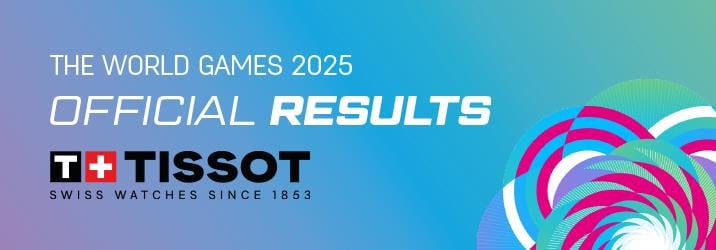On 18 November the International World Games Association will hold its media workshop for its 37 member federations. Due to the Corona pandemic, the exchange will take place in the form of a webinar. In the Interview of the Month, Hagen Bossdorf, IWGA TV and Marketing Coordinator, talks about topics and contents of the virtual meeting for media experts.
The IWGA is holding its Media Workshop for the third time. What has been the experience with the workshop so far?
The Annual Media Workshop is an important part of IWGA’s services for its member federations, and is prepared and executed by our IWGA media team. Following each workshop we have undertaken a little survey with all of the participants. I am happy to say that the feedback we have received has been mostly very positive. The few critical remarks have helped us to improve our programme for the next editions of the workshop. But it has become very clear that our stakeholders do appreciate this service a lot with regard to media strategies, social media, video production and streaming.
Why does the IWGA offer this workshop?
On the one hand, we do need this exchange of ideas and experiences with our member federations. We can all learn from each other through best-case studies, and through tutorials as well. We have invited the media managers or heads of communication of the IFs and of friendly multi-sport events such as University Games, World School Games and Paralympics. For all of us there is an overlap of similar challenges in our everyday media work. And then, we have organised interesting tutorials and presentations by external experts. It’s a kind of media education for all the participants in our workshop.
How many IFs have made use of this offer in past?
I can tell you that the development is quite positive. The first edition in 2018 attracted representatives from 15 IWGA member federations, and in 2019 we welcomed no less than 22 participants. And as I said before, media managers from other multi-sport events have also joined both of these workshops.
How good is your cooperation with the Olympic Channel?
First of all, the home of the Olympic Channel and OBS in Madrid, Spain has been the perfect location for our workshop. The support given by Catherine Philbin (Head of Communication) and John Palfrey (Director, Stakeholder Relations) in the preparation of the programme and the side-events has been especially valuable. Furthermore, we have appreciated the input from different Olympic Channel experts for production, social media campaigns and digital trends. And finally, yes: coffee, cakes and bites were really delicious!
What topics are on the agenda this time?
This year’s edition is special – as almost everything is special this year. We have prepared three parts to the programme: Firstly, best cases in how to produce and distribute video content under the conditions of a global pandemic. Secondly, an update about the preparations for host broadcasting and media for The World Games 2022 in Birmingham, Alabama. And finally, external insights for particular topics such as data management and streaming.
The pandemic has challenged the Federations in producing attractive content for their platforms. During the workshop, some of them will present best practice. Can you give a small example of what has been and is possible?
Of course I cannot do so at length, as I have to ensure that our workshop programme remains interesting and attractive for all our expected attendees! Seriously though, World Archery is a very good example in managing competitions and streaming under Covid-19 circumstances and integrating digital, virtual ideas on their platform.
The workshop itself is now taking place as a webinar. Does that make communication more difficult, or is it even best practice for the new forms of contact with the target groups?
There is no doubt that we would prefer to meet in person, discuss all matters directly and enjoy a drink together in the evening. But we all have to accept the framework for the work we can do in 2020. Maybe the communication will be more difficult in a webinar, only connected via Zoom or MS Teams. But having in mind that our member federations are running their headquarters between Bangkok, Lausanne and Colorado Springs, it might be easier to participate this year. So we do expect a higher number of participants, as everybody wants to know what’s going on in media in the year of the pandemic and two years before The World Games 2022.
The next event is The World Games 2022 in Birmingham, Alabama. What updates will you discuss with the IFs?
We are more than happy to welcome speakers from the Birmingham Organising Committee as well in the virtual workshop. Together, we will use the opportunity to give the IWGA member federations an update about the preparations of our main partners, such as ISB as host broadcaster and Swiss Timing as data & service provider. And of course, it’s a chance for federations who will participate in the Games in July 2022 to ask their specific questions too.
Is there a question which I forgot ask, but you want to answer all the same?
I don’t want to miss mentioning the great teamwork in our IWGA media department. I would like to acknowledge our headquarters with Chantal Boehi for the organisation, and our head of communication Anna Jacobson for her important contributions to the programme; without their support and the backing from the IWGA board and the CEO Joachim Gossow we would not have the time, budget and ideas to make this workshop possible.
The World Games is a multi-sport event staged every four years by the International World Games Association under the patronage of the International Olympic Committee. The 11th edition of The World Games will be held in Birmingham, Alabama, USA, 7-17 July 2022. 3,600 athletes from over 30 sports and 100 countries will take part in The World Games.


